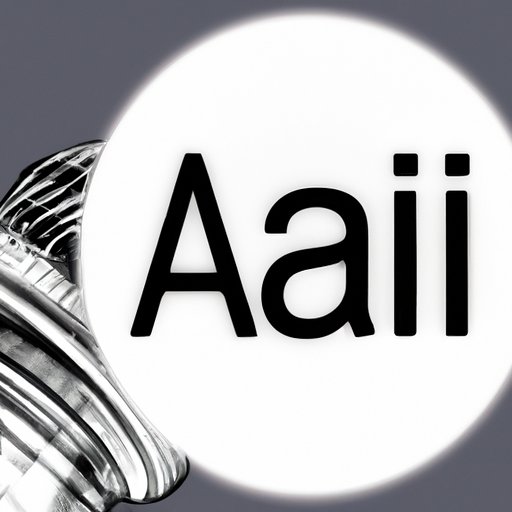Introduction
Artificial Intelligence (AI) has made incredible advances in recent years, and its applications are becoming increasingly widespread. One area of particular interest is the use of AI to generate images. AI generated images can be used in a variety of ways, from creating digital artwork to providing visual representations of data. But does the use of AI generated images have any legal implications? This article will explore the legal implications of AI generated images and how they affect copyright law.
Exploring the Legal Implications of Artificial Intelligence Generated Images
When it comes to the legal implications of AI generated images, there are a few key points to consider. First, what do copyright laws say about AI generated images? Second, what rights and restrictions surround AI generated images? And third, how are AI generated images impacting existing copyright law? Let’s take a look at each of these issues in turn.
What Do Copyright Laws Say About AI Generated Images?
The first question to consider is whether or not AI generated images are protected by copyright laws. According to a study conducted by the US Copyright Office, “Copyright protection may extend to AI-generated works where the work was created by an author using AI as a tool” [1]. This means that AI generated images can be eligible for copyright protection, depending on the circumstances of their creation.
Understanding the Rights and Restrictions Surrounding AI Generated Images
When it comes to the rights and restrictions surrounding AI generated images, there are several important points to keep in mind. First, the creator of the AI generated image owns the copyright to the image. Second, if the image is shared or distributed, the creator must provide attribution to the original source. Third, it’s important to note that some countries may have different laws when it comes to AI generated images and copyright protection. For example, in the UK, the Copyright, Designs and Patents Act 1988 states that “Copyright in a literary, dramatic, musical or artistic work is infringed by a person who, without the licence of the copyright owner, copies the work.” [2]
How AI Generated Images are Affecting Copyright Law
As AI technology continues to advance, the impact of AI generated images on copyright law is becoming increasingly apparent. For example, a recent study found that “AI generated works could potentially create a new category of copyrightable works, as well as new types of infringement” [3]. This suggests that AI generated images could lead to changes in the way copyright law is enforced, as well as new opportunities for creators to protect their work.
Examining the Impact of AI Generated Images on Copyright Law
In order to fully understand the impact of AI generated images on copyright law, it’s important to look at how they interact with existing copyright law. For example, some experts believe that AI generated images could lead to an increase in the number of copyright claims being filed. As one expert noted, “With the increasing sophistication of AI, we may see more people filing copyright claims for AI generated works” [4]. This could mean an increase in litigation, as well as new challenges for courts as they attempt to interpret copyright law in the context of AI generated images.
Analyzing Current Copyright Law as it Relates to AI Generated Images
It’s also important to analyze how existing copyright law applies to AI generated images. For example, the Digital Millennium Copyright Act (DMCA) provides certain protections for online service providers that host AI generated images. Specifically, the DMCA “protects online service providers from liability for copyright infringement when they host content created by an automated process, such as AI” [5]. This suggests that AI generated images may be subject to different standards than other types of copyrighted works.
Conclusion
In conclusion, AI generated images can have significant legal implications for copyright law. While AI generated images may be eligible for copyright protection, it’s important to remember that the rights and restrictions surrounding them may vary from country to country. Additionally, AI generated images may lead to changes in the way copyright law is enforced, as well as new opportunities for creators to protect their work. Finally, it’s important to understand how existing copyright law applies to AI generated images, such as the protections provided by the Digital Millennium Copyright Act.
Summary of Findings
To summarize, this article has explored the legal implications of AI generated images and how they affect copyright law. It has outlined the rights and restrictions surrounding AI generated images, examined the impact of AI generated images on copyright law, and analyzed current copyright law as it relates to AI generated images.
Recommendations for Future Considerations
Going forward, it’s important to keep in mind the potential implications of AI generated images for copyright law. This includes understanding the rights and restrictions surrounding AI generated images, examining the impact of AI generated images on copyright law, and analyzing current copyright law as it relates to AI generated images. As AI technology continues to advance, it’s important to stay informed about the legal implications of AI generated images and how they affect copyright law.
(Note: Is this article not meeting your expectations? Do you have knowledge or insights to share? Unlock new opportunities and expand your reach by joining our authors team. Click Registration to join us and share your expertise with our readers.)
